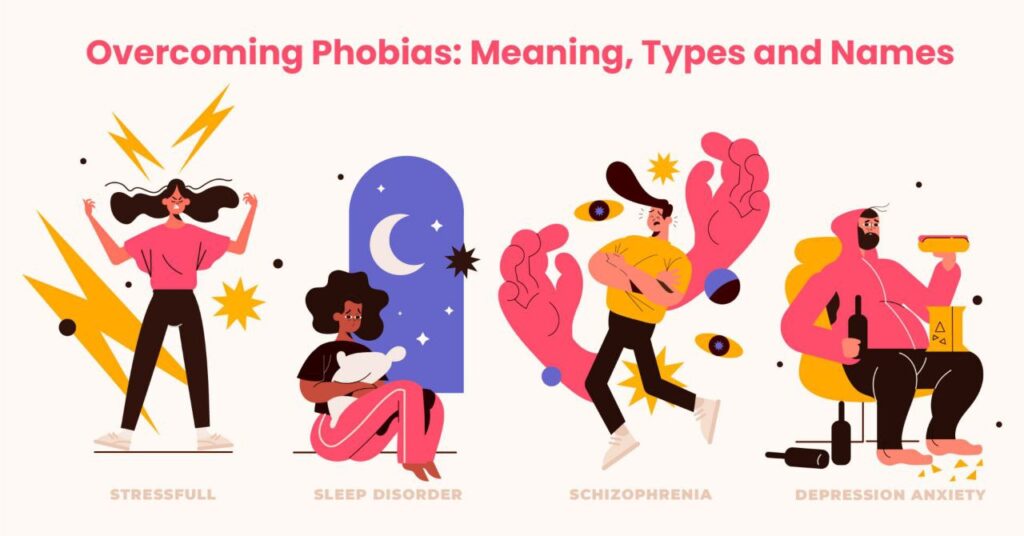Overcoming Specific Phobias: A Journey to Freedom
Specific phobias are a type of anxiety disorder that can have a profound impact on an individual’s daily life. They are characterized by an excessive or irrational fear of a specific object, situation, or activity, which can trigger a range of symptoms such as panic attacks, avoidance, and significant distress. In this article, we will explore the common types of specific phobias, the causes and symptoms, and most importantly, the strategies and therapies that can help individuals overcome their phobias.
Common Types of Specific Phobias
There are many types of specific phobias, but some of the most common include:
- Glossophobia (Fear of Public Speaking): A fear of speaking in front of an audience, which can lead to avoidance of social situations and significant anxiety.
- Acrophobia (Fear of Heights): A fear of heights, which can lead to avoidance of tall buildings, bridges, or other high places.
- Ophidiophobia (Fear of Snakes): A fear of snakes, which can lead to avoidance of certain environments or activities.
- Aerophobia (Fear of Flying): A fear of flying, which can lead to significant anxiety and avoidance of air travel.
- Claustrophobia (Fear of Enclosed Spaces): A fear of enclosed spaces, which can lead to avoidance of public transportation, elevators, or other confined spaces.
Causes and Symptoms
Specific phobias are often caused by a combination of genetic and environmental factors. For example, a person who had a traumatic experience with a snake may develop ophidiophobia. The symptoms of specific phobias can vary from person to person, but common symptoms include:
– Panic attacks: A sudden onset of intense fear or anxiety that can be accompanied by physical symptoms such as rapid heartbeat, sweating, and trembling.
– Avoidance: Avoiding situations or objects that trigger the phobia.
Excessive anxiety: Feeling anxious or fearful in situations that trigger the phobia.
– Physical symptoms: Physical symptoms such as tremors, sweating, and nausea.
Overcoming Specific Phobias
Fortunately, specific phobias are treatable. There are several strategies and therapies that can help individuals overcome their phobias. These include:
- Cognitive-Behavioural Therapy (CBT): A type of therapy that helps individuals identify and change negative thought patterns and behaviors associated with their phobia.
- Exposure Therapy: A type of therapy that involves gradually exposing the individual to the feared object or situation in a controlled environment.
- Relaxation Techniques: Techniques such as deep breathing, progressive muscle relaxation, and visualization can help individuals manage their anxiety and reduce symptoms.
- Support Groups: Joining a support group can provide individuals with a sense of community and understanding from others who have experienced similar challenges.
Conclusion
Overcoming specific phobias requires a combination of understanding the causes and symptoms, as well as implementing effective strategies and therapies. With the right treatment and support, individuals can learn to manage their phobias and live a more fulfilling life. If you are struggling with a specific phobia, don’t hesitate to seek help from a mental health professional.
References:
https://my.clevelandclinic.org/health/diseases/9794-
https://www.psychiatry.org/patients-families/
Websites:
Britmed Healthcare: https://britmedhealthcare.co.uk/
Nightingale Hospital: https://www.nightingalehospital.co.uk/
Top Doctors: https://www.topdoctors.co.uk/doctor/ahmed-el-missiry
You can also book, Contact us on WhatsApp 08009708017




